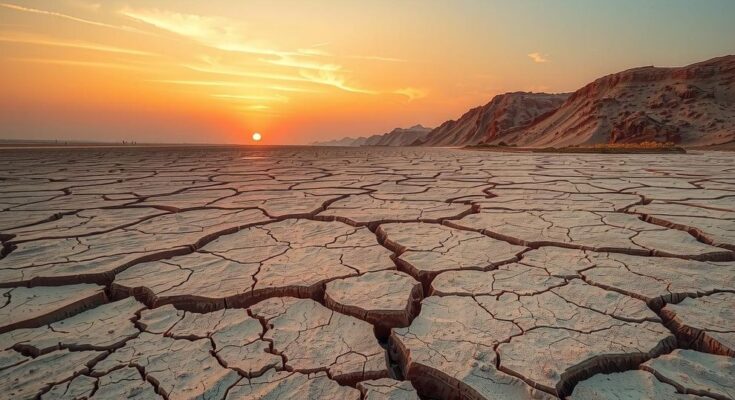Qatar’s Prime Minister warns that an attack on Iran’s nuclear facilities could lead to a significant water crisis in the Gulf, threatening survival due to seawater contamination. Emphasizing a preference for diplomacy over military action, he also highlighted Iran’s willingness to engage in constructive dialogue. The discussion occurs against the backdrop of long-standing accusations regarding Iran’s nuclear ambitions, exacerbated by the U.S.’s withdrawal from a nuclear agreement in 2018.
Sheikh Mohammed bin Abdulrahman bin Jassim Al-Thani, the Prime Minister of Qatar, expressed grave concerns about the implications of a potential military attack on Iran’s nuclear facilities. In an interview with Tucker Carlson, he emphasized that such an assault would result in a complete contamination of seawater, jeopardizing the water supply for Gulf countries. He stated that Qatar could deplete its water reserves within three days, illustrating the urgency of the situation despite recent improvements in Qatar’s water capacity through reservoir construction.
The Prime Minister highlighted the far-reaching consequences, noting, “No water, no fish, nothing… no life,” reflecting the critical role of water for survival in the region. This warning coincided with comments from former President Donald Trump, who mentioned his preference for a peace deal over military action but acknowledged other available options if necessary.
Located 190 kilometers south of Iran, Qatar relies predominantly on desalination for its water needs, a necessity shared with other Gulf States due to the arid climate. Sheikh Mohammed mentioned Iran’s nuclear power plant at Bushehr and the need for caution regarding military actions, stressing that Qatar harbors not only military but also security concerns. He reaffirmed Qatar’s stance against military action and called for a diplomatic resolution between the United States and Iran, acknowledging Tehran’s willingness to engage in discussions to stabilize regional relationships.
The history of Western accusations against Iran regarding nuclear advancements was also touched upon, including the 2015 nuclear deal’s collapse following the U.S. withdrawal in 2018 under Trump’s administration. Sheikh Mohammed urged continued dialogue to foster greater stability in the Gulf region as a means to alleviate existing tensions.
Sheikh Mohammed articulated significant concerns regarding regional water security amidst potential military action against Iran. The contamination of seawater poses a substantial risk to water supplies in the Gulf, with Qatar potentially facing a severe crisis within days. He reaffirmed Qatar’s commitment to diplomatic engagements with Iran, stressing the importance of stability and cooperation in the region to prevent conflict and ensure resources remain accessible. The need for continuous dialogue and a peaceful resolution remains paramount for all involved parties.
Original Source: www.enca.com




